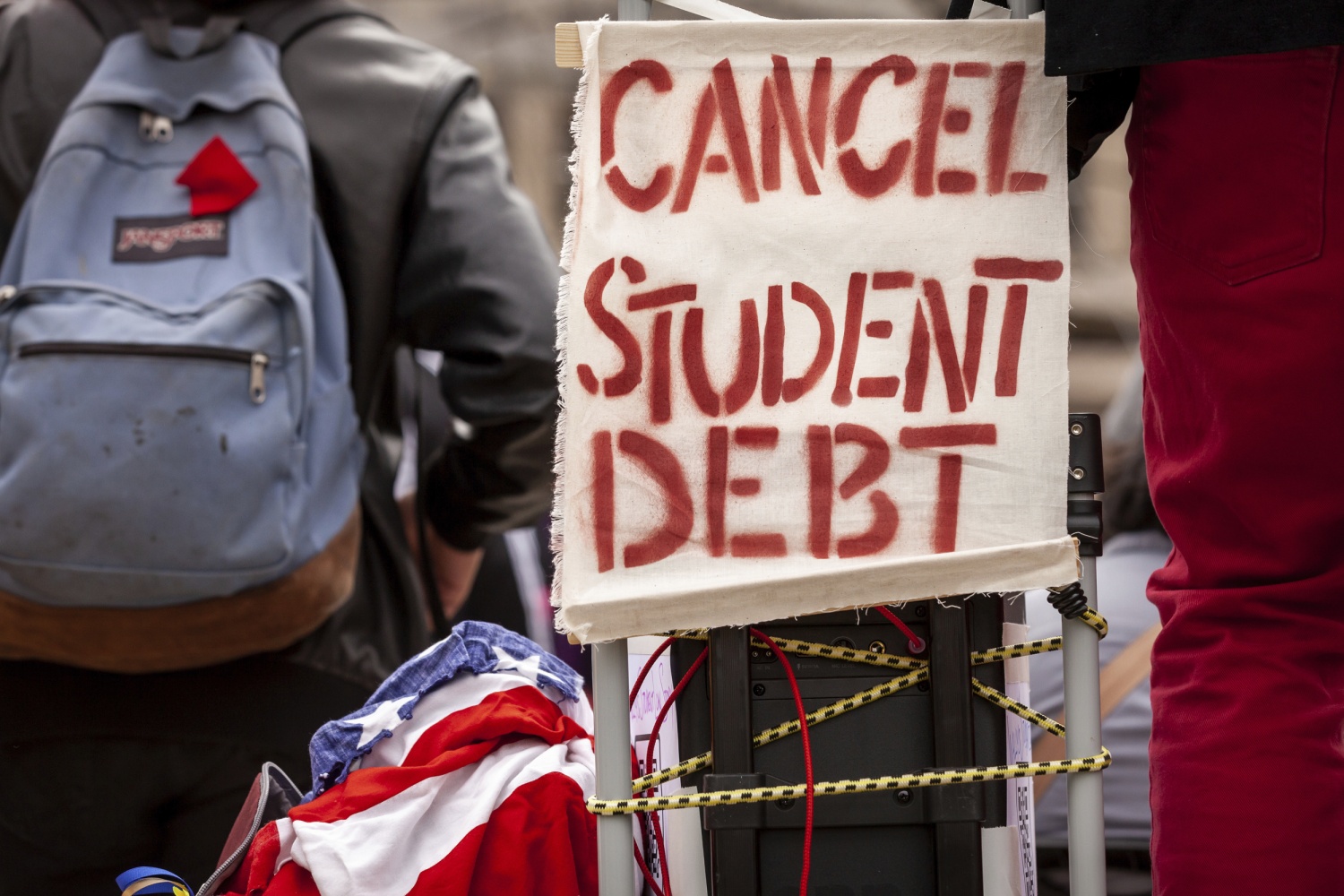
Education seems like a sure path to success sometimes. But student loan debt creates a big problem for many. This debt affects finances and life decisions greatly. People around the world share tales of regret about costs. They struggle with loans; dreams are put on hold now. Higher education cost is more complicated than it seemed.
Jessica in Australia wishes she thought more about degrees. Her student loan, called HECS-HELP, reached $83,000. Many others face this same big challenge too. She regrets not considering costs carefully enough. A different career path may have been better for her. Nursing or teaching might mean less debt, perhaps. So she quit her master’s study early.
Things stayed hard even after her graduation day. She didn’t earn enough money to pay the loan back. Her salary was below the needed HECS limit. Meanwhile, interest kept building up fast. The COVID pandemic hit her industry hard then. Jessica chose to study more ironically. Her HECS loan balance went up because of this.
Student debt problems are not just in Australia alone. UK graduates face huge pressure from loans too. Some owe incredible amounts, maybe £120,000. Interest rates keep making these debts much bigger. People quit jobs because loan repayments are high. Buying a house is harder because of these loans. Stress from debt harms people’s mental health too.

Some UK people try hard to avoid paying more. They avoid jobs that would trigger bigger payments. People shared this online and in interviews. Some even took low-paid minimum-wage work. They did this even with degrees in needed fields. High salaries mean bigger loan bills coming. So avoiding high pay felt better financially.
Look at Olivia; she is thirty now. Her debt went from £68,000 to almost £75,000 total. Olivia took a job that paid less money. This cut her monthly £350 loan payments down. She struggled to afford the full amount before. With lower loan and tax bills, she felt better off. The system makes earning less feel safer now.
There is Lucy, another case of debt struggle. She is 38 and lives in the Essex region. Not paying her loan is defiance to her. She got a math degree back in 2007. Graduate jobs felt heavy with the £20,000 pay. Lucy has worked minimum wage jobs since she was 25. The debt makes her not want to earn more money.
Some people take drastic steps for loan debt. Carrie is a dietitian for the NHS in Cheshire town. She borrowed money to pay off her student loan. Her debt was near £20,000 at the time. But these payments barely covered just interest. Pay raises would mean higher payments later too. So Carrie chose to remortgage the home to clear it.

Lots of UK people have left their chosen careers now. They sought higher pay in IT or banking, maybe. It felt like the only way to manage the debt load. This is a problem for public sector workers. But changing careers does not always guarantee relief. Look at Kevin, a teacher in the Buckinghamshire area. Three years back, he took out a loan for his master’s.
Kevin felt the Masters was a total waste then. Schools did not seem to value it at all. He got a big debt but no career help. The loan payments were way too high for teacher pay. So Kevin retrained as a data protection officer guy. Now he is looking for a different job. Advanced degrees don’t always mean more money.
A teacher down south agreed with Kevin’s view. The loan system puts people off teaching. Needed experts leave their fields due to money problems. This worsens staff shortages where they are needed most. But many graduates feel trapped by loan payments. Wages have not kept up with costs in recent years. The living crisis makes debt feel much heavier on them.
Here is Daniel, software engineer at 27. He finished university with a £55,000 debt bill. His pay is good, £3,400 per month now. Yet his debt has grown since his 2019 graduation date. It is around £70,000 roughly today. He thinks the loan will never get paid off. The monthly £220 payment feels like tax paid.

Many people regret their actual degree chosen. Especially those in lower-paying professions later. Nurses, teachers, and artists felt this way too. They felt trapped or misled about loan advice. The majority said they didn’t get the loan terms fully. This points to a larger system problem here.
Meet Carmen, a doctor aged 43 years. Repaying her loan since 2015 she is. Still owes about £36,000. Carmen tells the younger family to skip university now. Her experience means she feels better off not going. Her sister has fewer educational qualifications. Loan debt removes the degree money advantage often.
Mazaher Muraj works as a software engineer. He is 35 years old and from the Milton Keynes area. Repays around £350 each month still now. The first job paid £20k; today, he earns almost £70k. Even with a high salary, it feels like university is not worth it. Few co-workers have degrees, he noted. Earning more means paying more student loan money.
Student loan talk in the US got more complex recently. Policies changed, and collections restarted there. Tracy Davis, 42, felt surprised by government actions. She voted for Trump but was disappointed slightly. Collections on defaulted loans started up again. Negative reports on credit began on October 1st. The Education Department said this restored accountability now.
Education Secretary Linda McMahon shared a viewpoint. She said not paying back loans hurts people. Borrowing and not paying back is not a victimless act. Debt does not disappear; it just moves. Taxpayers end up paying if borrowers do not. This justified restarting loan collections now. It was about taxpayer fairness, they explained.
Before the pause, Tracy Davis paid $150, when Pause stopped, her bill went up a lot. It was almost $400 a month suddenly. She said she could not afford it at all. Tracy fell behind on her payments quickly. Her credit score got bad because of it. Negative reporting started up again fast.

Many borrowers shared their upset feelings. Some were behind or in default on loans owed. They felt the restart was too sudden for them. Consequences included credit hits and wage cuts, maybe. But some borrowers agreed loans must be paid. But wage garnishment was still planned ahead. Tracy Davis worries this might happen to her now.
Collections restarting caused big emotional stress. One person felt ‘buyer’s remorse’ about voting. Miranda Metheny, 37, is in default on her debt. She cannot work due to a disability condition. Her $600 monthly income is not enough for loans. She must support her two children also.
Miranda shows how fragile finances are for many. People already do not earn enough to survive, really. Student payments cutting income worried her a lot. Taking from limited money is always a big concern. Now they want to cut into that small amount again. She worries for folks who are already hurting now. Debt collection hits vulnerable groups hard, it seems.

Five million US borrowers are in default status. The Education Department estimates this figure now. Millions more may follow soon; data indicates it. Delinquency rates jumped up a lot recently. Over 8 percent of balances went seriously late in 2025. Many risk default because they don’t know their status. Or are you just not ready for another payment owed?
Not all borrowers dislike loans being paid back. Some people agreed loans should get repaid. Cheri is 67 and voted for Trump for president. She has not paid since the pandemic stopped her. Not ready for monthly bills again financially. Cheri opposes sending people to collections now. After tough years, this feels like a very drastic step.
Lots of Americans regret financial choices made. Over one in five often regret money decisions they make. This survey shows regret is a widespread feeling. Credit card debt was the top regret item. Not saving emergency funds was second place. Student loans also made many feel a lot of heavy regret. Especially people with advanced degrees earned.
The survey had interesting findings about education levels. People with advanced degrees felt more regret now. 28% of highly educated regretted choices always or often. This compares to 21% with bachelor’s degrees only. And 22% of people have no college at all. Advanced degree holders estimate lost money now. Debt impacts saving for children’s school funds too.

Pursuing higher education often seemed like a path to better financial security. But it can become a major source of financial trouble and feeling regret. This happens especially if the resulting career doesn’t pay enough back. This echoes stories from other places like the UK and Australia. Graduates in fields like teaching didn’t earn what they expected there. Their degrees did not translate into enough money to manage loan debt burdens. The survey also asked about other kinds of financial regret. It offered a wider look at money worries for Americans lately. Things bought during the pandemic, like cars and houses, caused big regret. Major money decisions outside education can lead to people feeling remorse. Regret over not saving or investing sooner was common. This was especially true for retirement fund savings. Regret about investments in cryptocurrency also came up often. Another key finding showed widespread regret about not negotiating salary more frequently than they did. Over sixty percent of Americans felt strongly upset about this fact.
People with advanced degrees and younger generations showed very high regret levels here. They estimated thousands in earnings were lost this way. This shows the crucial link between earning potential and handling debt. Higher salaries can certainly help someone tackle debt faster. But failing to earn what you are worth makes the money strain worse for them. These personal stories and the survey data paint a complex picture. It shows the often hard reality of handling educational debt now. As policies change and economic pressures stay high, understanding others helps. From the shock of restarts to the long weight of regret felt. It serves as a strong reminder about careful choices. Evaluate the costs and possible returns of getting higher education. Manage your finances proactively to not join those with big money remorse.
Related posts:
Aussie graduate’s major $83,000 HECS warning: ‘Out of hand’
‘I’d be better off if I hadn’t been to uni’: UK graduates tell of lives burdened by student loans
Trump voters with student loans are having ‘buyer’s remorse’ over his latest debt collection moves



